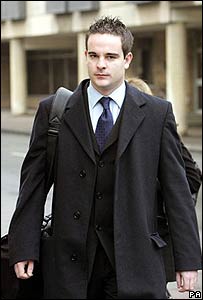British nurse-muderer sentenced to life inprisonment

Benjamin Geen, 25, did not flinch as the Oxford Crown Court gave him 17life sentences and told him he would spend at least 30 years behind bars before he is considered for parole.
Prosecutors told the nine-week trial that Geen - a staff nurse in the emergency room at Horton General Hospital in Banbury, west of London - became elated as patients went into respiratory arrest as a result of the drugs.
"It seems that you relished the excitement of that feeling of taking control but you must have known quite well that you were playing with their lives," Justice Peter Crane told Geen in passing sentence.
"This was a terrible betrayal. You betrayed your nursing and medical colleagues and the vital profession of which you had been a member. Most of all, you betrayed the trust of the patients."
Geen has denied all the charges and says he will appeal.
Speaking through his solicitor after sentencing, he called for a public inquiry into what caused the deaths and injuries.
Prosecutors said that between December 2003 and February 2004, Geen sent 15 patients to the brink of death.
They recovered, but David Onley, 75, of nearby Deddington, died on Jan. 21, 2004, and Anthony Bateman, 65, from Banbury, died on Jan. 6, 2004.
Prosecutors said Geen became elated when patients went into respiratory arrest.
On one occasion he boasted that, "There is always a resuscitation when I'm on duty," authorities said.
A fellow nurse testified that Geen muttered "Oh no, here we go again" as Bateman turned blue and began to fight for breath.
Geen mostly used anesthetic drugs that were commonly used in the hospital and readily available in emergencies, but "deadly in the wrong hands," prosecutors said.
Eventually, doctors became suspicious and Geen was arrested as he arrived for work with a full syringe of vecuronium, a muscle relaxant.
Subscribe to Pravda.Ru Telegram channel, Facebook, RSS!





